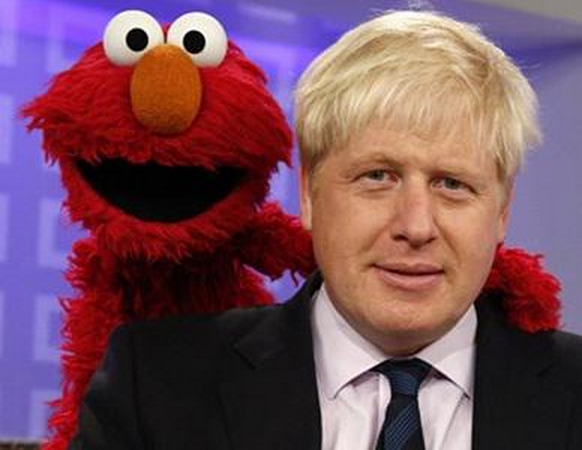Republished from OpenDemocracy under Creative Commons Attribution-NonCommercial 4.0 International licence.
The oil giant was recognised by the Sustainable Markets Initiative – despite missing out on top sustainability score
Dimitris Dimitriadis
Ben Webster
4 November 2022, 2.16pm
The King’s climate change initiative has been accused of helping BP greenwash its image by giving it a royal seal of approval.
The Sustainable Markets Initiative (SMI), which Charles launched in 2020 when he was Prince of Wales, granted BP a “Terra Carta Seal” even though the oil and gas giant had failed to achieve a top score from the sustainability ranking company assessing applicants for the awards.
BP is a founding member of the SMI, while its chief exec Bernard Looney chairs the SMI’s Energy Transition Task Force. BP also appears to be helping fund the SMI, although no financial links are disclosed on the “Terra Carta Seal” section of the SMI’s website.
Charles announced 45 corporate winners of the seal during COP26 in Glasgow last year, including AstraZeneca, Orsted and Unilever. BP was not mentioned on that list but was quietly added later to the list of recipients.
Charles is today hosting a pre-COP27 reception at Buckingham Palace with seal winners expected to be on the guest list.
He has described the seal as recognising organisations “which have made a serious commitment to a future that is much more sustainable”, saying it “puts nature, people and the planet at the heart of the economy”.
Environment groups have criticised the decision to give a seal to BP, which this week posted “eye-watering” quarterly profits of £7bn on the back of the surge in wholesale gas prices caused by Russia’s invasion of Ukraine.
“It’s concerning that BP, as a major sponsor of the Sustainable Markets Initiative, was able to be awarded the seal despite its track record of delaying climate action,” said Faye Holder, programme manager at the think tank InfluenceMap – which researches the impact of businesses on the climate.
“Awards like this run the risk of legitimising greenwashing.”
Clive Russell, a spokesperson for Ocean Rebellion, an activist group that spun out of Extinction Rebellion, said giving BP a seal undermined SMI’s credibility: “How can an initiative co-founded by a world renowned polluter like BP – a company currently investing £300m in renewables and £3.8bn in new oil and gas – be taken seriously? The SMI should be disbanded. Those involved should hang their heads in shame. This is blatant greenwashing.”
SMI makes reference on its website to criteria used by Corporate Knights (CK) – a research firm that assesses the sustainability of the world’s largest companies. “Recipients of the Terra Carta Seal have been assessed against CK’s indicators and methodology used for CK’s Global 100 most sustainable companies,” it states.
Analysis by Oil Change International found that climate pledges made by BP and seven other major oil and gas companies were ‘grossly insufficient’
CK, which worked “in close partnership” with SMI on the Terra Carta Seal, refused to disclose its assessment of BP. However, BP did not feature in CK’s Global 100 Ranking for 2021.
Some analysts have said BP’s environmental targets are more ambitious than some of its competitors but analysis by the group Oil Change International found that the climate pledges made by BP and seven other major oil and gas companies were “grossly insufficient”.
Holder said BP spent a lot of money promoting its green credentials but its claims were “out of proportion to the company’s actual investments in low carbon activities and its continued lobbying to weaken climate policies around the world, including the climate compatibility checkpoint in the UK”.
A spokesperson for BP said that the organisation was considered for the Terra Carta seal “as an active Task Force member of the SMI” and was “proud to have received it”.
Lloyd’s of London, the world’s largest insurance marketplace, also quietly received a seal. It was not mentioned in SMI’s press release last year and did not feature in CK’s Global 100 Ranking for 2021.
Lloyd’s has been criticised for being slow to exit fossil fuel underwriting and investments and in April was forced to shut its City headquarters after the building was barricaded by Extinction Rebellion activists.
A Lloyd’s spokesperson said the Terra Carta Seal was “a prestigious accolade which we are grateful to receive, but we are determined to be measured by our progress and delivering on our resolute commitments to be the insurer of net zero”.
HSBC, another seal winner not listed in CK’s Global 100 Ranking for 2021, was recently reprimanded by the Advertising Standards Authority after it ran a series of “misleading” climate adverts that failed to reflect the bank’s own contribution to the climate crisis.
An HSBC spokesperson said: “We are committed to a net zero future and support industry-wide collaboration into solving the challenge of how the financial sector and its clients can achieve net zero.
“We have had a policy since 2018 to stop supporting thermal coal projects and we are phasing out existing thermal coal financing. We have committed to a science-based phase down of our fossil fuel financing, are updating our sector policies including energy and deforestation to align with latest scientific guidance, and are setting science-based 2030 financed emissions sectoral targets for on- and off-balance sheet financing.”
A Buckingham Palace spokesperson declined to answer questions and said: “This is a matter for SMI.”
SMI and Corporate Knights did not respond to requests for comment.
Republished from OpenDemocracy under Creative Commons Attribution-NonCommercial 4.0 International licence.







